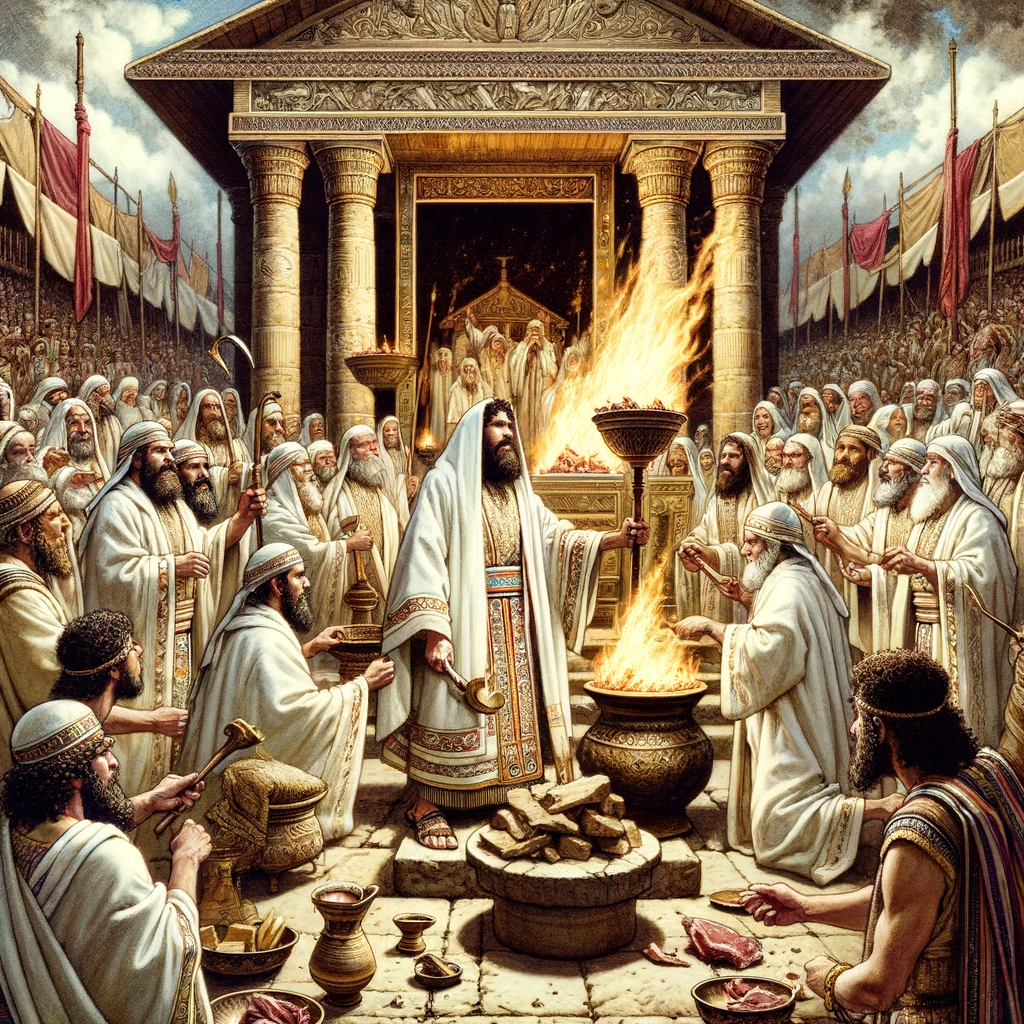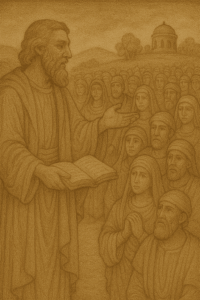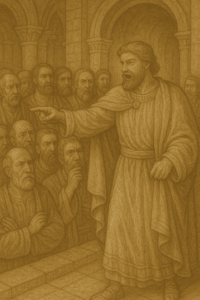From consecration to action: Witnessing the first sacrifices.
Having established the Tabernacle and consecrated the priests, Leviticus 9 takes us into the heart of its inaugural use. We witness the first offerings presented, revealing deeper meanings and the transformative impact they have on the Israelite community.
Aaron steps forward: Offering for himself and the people.
The chapter opens with Aaron, the newly appointed High Priest, presenting offerings for himself and the people. These acts symbolize atonement for sin, dedication to God, and the ongoing need for reconciliation and connection.
Fire descends: A sign of divine approval.
The narrative reaches a dramatic peak as fire miraculously consumes the offerings, emanating directly from the Lord himself. This extraordinary event serves as a tangible confirmation of God’s acceptance and favor upon the sacrifices and the newly established Tabernacle.
Blessings and outpouring: Witnessing God’s glory.
The chapter culminates with a breathtaking display of God’s glory. A cloud descends upon the Tabernacle, signifying His presence and blessing upon the Israelites. This awe-inspiring event reinforces the reality of God’s nearness and the significance of the newly consecrated dwelling place.
Beyond the ritual: Lessons for our lives.
While the specific practices of Leviticus 9 may seem distant from our modern lives, the underlying themes offer valuable insights:
- Importance of offerings: Recognizing the symbolic meaning of offerings and acts of service as expressions of devotion and connection to the divine.
- Seeking divine acceptance: Striving to align our actions and intentions with God’s will and seeking His approval in our spiritual journey.
- Experiencing God’s presence: Cultivating practices and environments that open us to experiencing the reality of God’s presence in our lives.
- Awe and wonder: Maintaining a sense of awe and wonder for the spiritual mysteries that surround us.
Conclusion.
Leviticus 9 transcends mere ritualistic details, offering a glimpse into the transformative power of faith and the profound experience of witnessing God’s acceptance and presence. While the historical and cultural context differs, the essence of seeking connection, experiencing awe, and aligning ourselves with the divine remains relevant for individuals and communities seeking deeper meaning in their lives.






